Event Review | IEEE Power and Energy Society DLP: Smart Grid: European and Swedish Experience
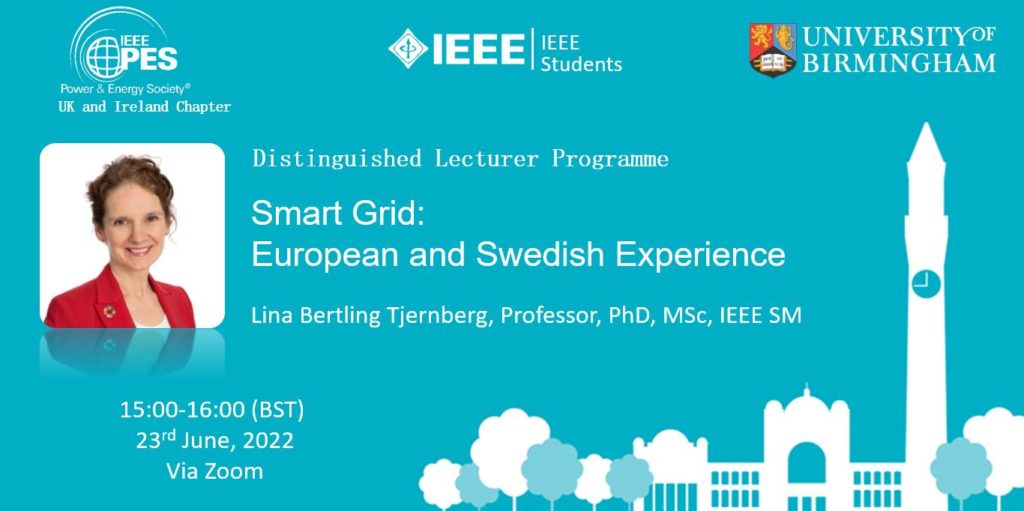
The IEEE PES Distinguished Lecturer Program (DLP) webinar was delivered by Professor Lina Bertling Tjernberg, professor in power grid technology and the Director of the Energy Platform, KTH Royal Institute of Technology, Stockholm, Sweden. Her research interests include applied reliability theory and maintenance management. The topic for the webinar was titled “Smart Grid: European and Swedish Experience” on Thursday, 23rd June 2022.
This webinar was organized by IEEE UK and Ireland Power & Energy Society Chapter and hosted by the University of Birmingham (UoB) IEEE Student Branch (who also acts as the IEEE PES student branch chapter at UoB). This event attracted 71 registrations and 26 attendees.
To start the event off the host, Nan Chen, the Chair of UoB IEEE Student Branch, welcomed everyone and briefly introduced the student branch, before introducing the speaker, Professor Lina Bertling Tjernberg, to the audience.
Professor Tjernberg firstly talked about the current European energy situation. First, geopolitically in the current invasion of the Ukraine. How the Ukraine-Moldovan energy system less than a month after the invasion from Russia to the Ukraine was able to synchronise with the ENTSO-E. To ensure safe secure power to Ukrainians and Moldavans without having to depend on the larger Russian operated power network.
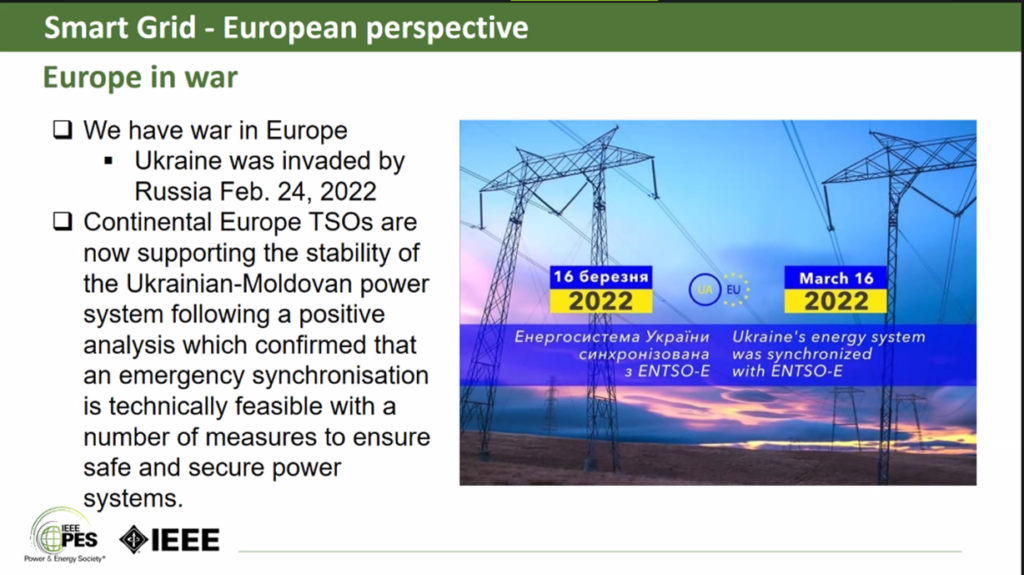
Secondly in terms of sustainability. She talked about the European Green Deal Call which outlined the plan for a fair and inclusive green and digital transition. Then about the EU commission’s efforts to meet these goals in the ‘Fit for 55’ climate package which would back the Green Deal with legislation and would drastically reduce CO2 emissions.
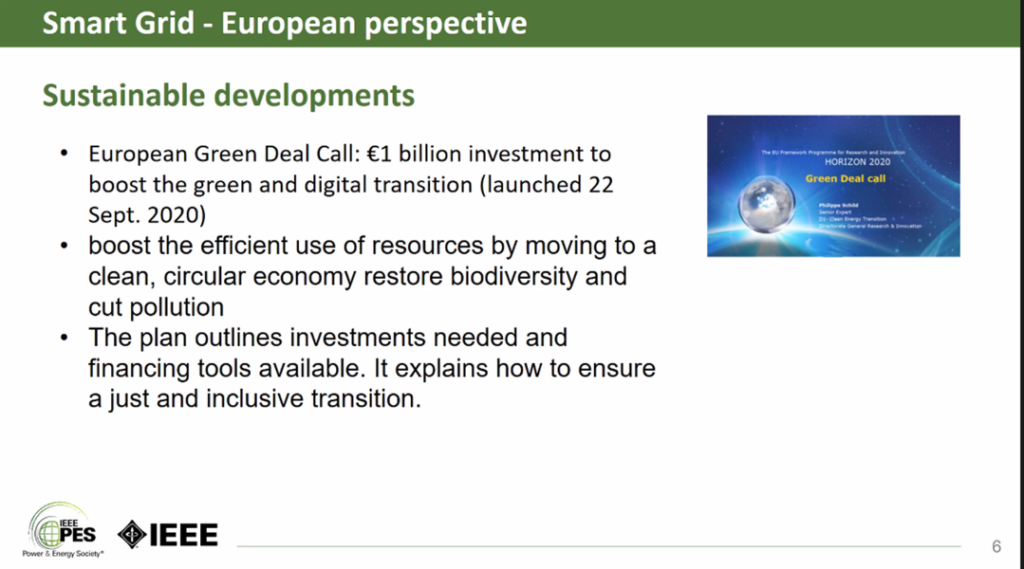
This set the scene and grounded the rest of the presentation. She then talked about the Smart Grid, a definition and its challenges. The benefits of the Smart Meter in frequency reserve (power balancing to stabilise frequency) and load shaving (consumers shedding loads at specific busy times to lower overall peak demands).

She gave an example about a company called Vattenfall using batteries from BMW for a 3.2 MW battery storage in Prince Alexia windfarm (122 MW) near Amsterdam. Before then giving the role and impact of EV, specifically PEV (Plug-in electrical vehicle) in the grid. Different trends were given such as there were 3.2M registrations of PEV by the end of 2020, how hybrid EVs were a large portion of the EVs in Europe and from a report from Delta-EE, Europe may see 84 million EVs on European roads by 2030.
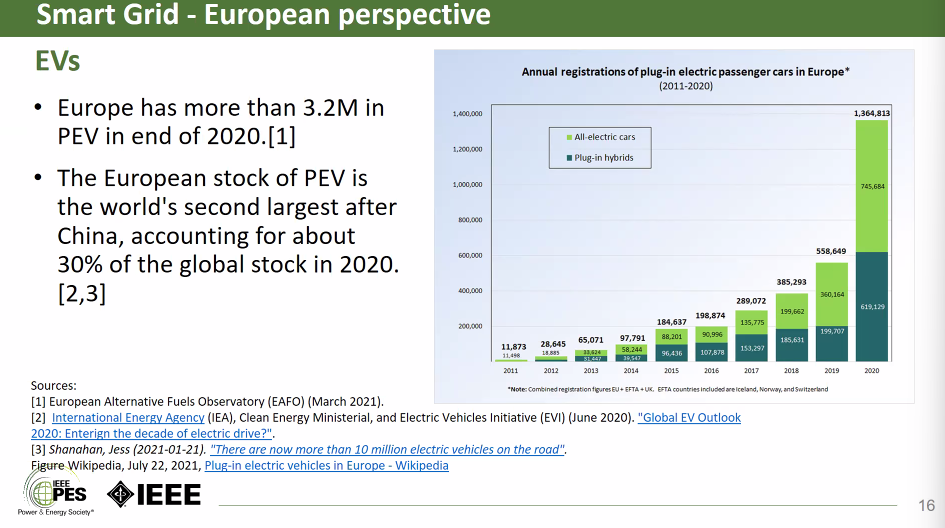
This gave rise to various examples about how to evaluate this trend, firstly in European charging infrastructure already pioneered by Tesla but needing more by 2030. But also sustainably, by repurposing EV batteries as a second life battery. Constructing a battery in such a way with the correct raw materials to be able to be recycled and used again as a battery. This is a project she is currently working on.
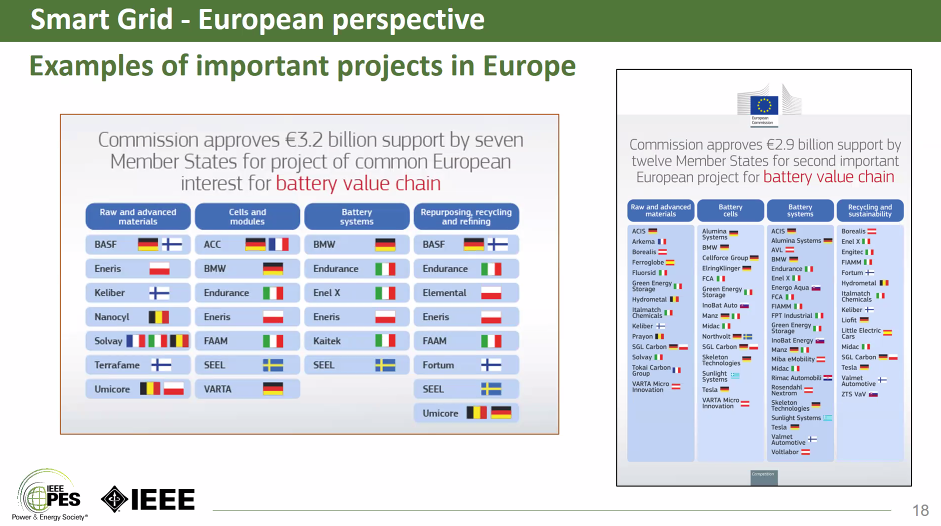
Professor Lina Bertling Tjernberg finished her presentation by talking about how legislation, public acceptance, location and financial incentives were important, in introducing different forms of energy storage. An example she gave was the European battery alliance which aims to a capture a new battery market worth 250B€/year in 2025 ensuring competitive but sustainable market practices between European battery manufacturers, with legislation and financial incentives.
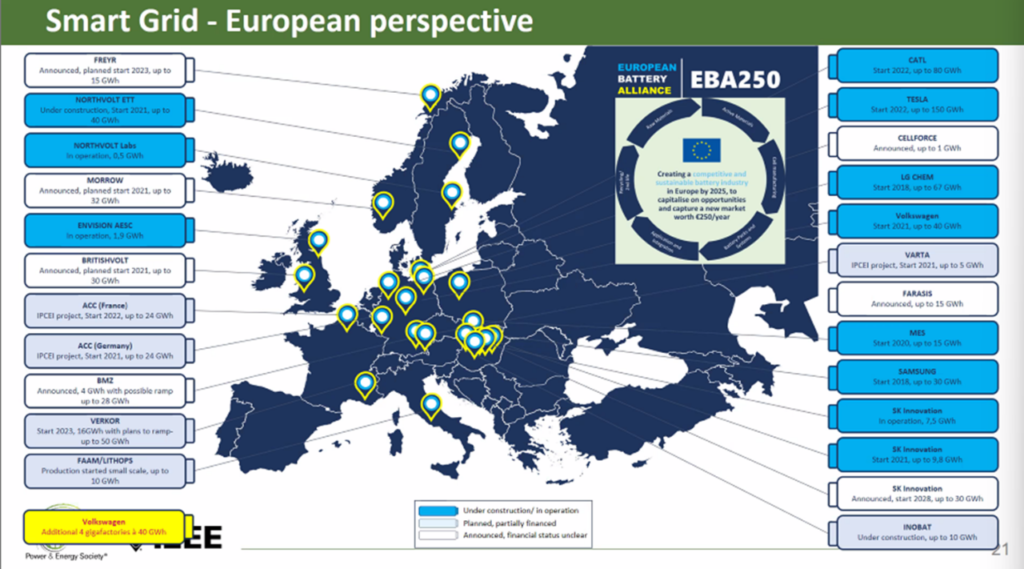
The presentation lasted for around 45 minutes and was followed by a 20-minute Q&A session in which Professor Lina Bertling Tjernberg commented in detail on questions raised by the audience, giving insightful examples and recommended resources.
For more details about the biography of Professor Lina Bertling Tjernberg and the abstract of this presentation, please visit the UoB IEEE Student Branch website (https://edu.ieee.org/uk-uob/).
By David Li
Treasurer, University of Birmingham IEEE Student Branch
